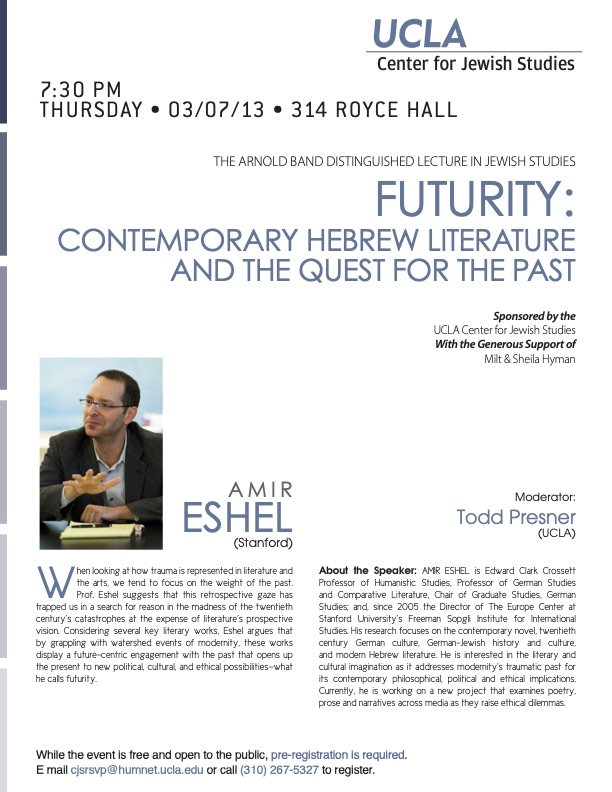
When looking at how trauma is represented in literature and the arts, we tend to focus on the weight of the past. Prof. Eshel suggests that this retrospective gaze has trapped us in a search for reason in the madness of the twentieth century’s catastrophes at the expense of literature’s prospective vision. Considering several key literary works, Eshel argues that by grappling with watershed events of modernity, these works display a future-centric engagement with the past that opens up the present to new political, cultural, and ethical possibilities—what he calls futurity.
About the Speaker: AMIR ESHEL is Edward Clark Crossett Professor of Humanistic Studies, Professor of German Studies and Comparative Literature, Chair of Graduate Studies, German Studies; and, since 2005 the Director of The Europe Center at Stanford University’s Freeman Sopgli Institute for International Studies. His research focuses on the contemporary novel, twentieth century German culture, German-Jewish history and culture, and modern Hebrew literature. He is interested in the literary and cultural imagination as it addresses modernity’s traumatic past for its contemporary philosophical, political and ethical implications. Currently, he is working on a new project that examines poetry, prose and narratives across media as they raise ethical dilemmas.